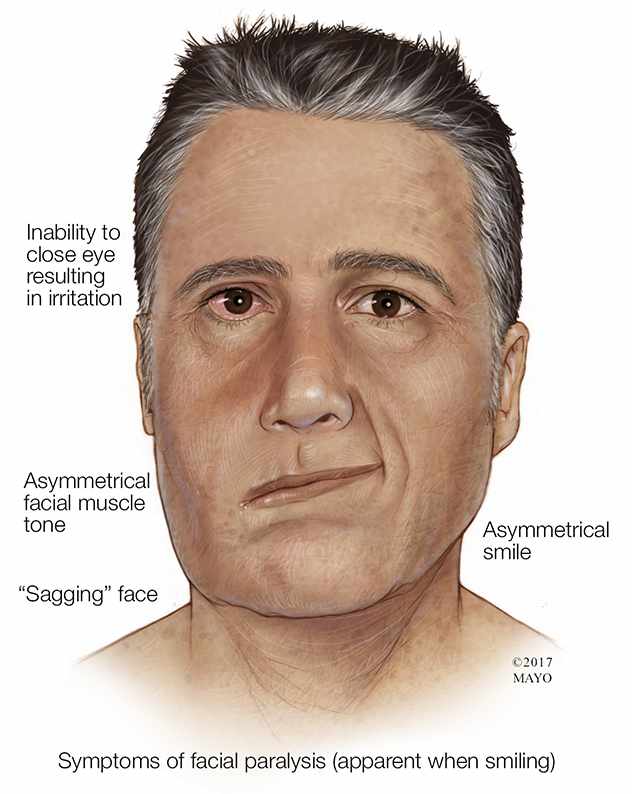Norovirus: What to know and how to avoid it - Mayo Clinic

If you've been bit by a stomach bug lately, you're not alone. The Centers for Disease Control and Prevention (CDC) is reporting significant norovirus activity across the country, especially in the West and Northeast.
The latest trend reports show that in the West region, more than 12% of tests for norovirus were coming back positive, while that number was more than 13% in the Northeast. Activity in the Midwest and Southern regions was slightly lower, with around 10% of tests coming back positive.
Noroviruses are usually more widespread in the fall and winter, but you can get sick from the virus any time of the year. The Centers for Disease Control and Prevention (CDC) says norovirus is the leading cause of vomiting and diarrhea from acute gastroenteritis in the U.S.
Norovirus infection, sometimes referred to as stomach flu, is unrelated to the flu caused by the influenza virus. Dr. Nipunie Rajapakse, a pediatric infectious diseases physician with the Mayo Clinic Children's Center, says it's a virus that causes gastroenteritis.
"Norovirus is a type of virus that causes gastroenteritis or stomach flu. Usually, it presents with symptoms like vomiting and diarrhea. Most healthy people will have recovery over a few days. But for people with a weakened immune system, for example, their symptoms can last longer than that," she says.
Watch: Dr. Nipunie Rajapakse explains norovirus and how to avoid it
Journalists: Broadcast-quality sound bites are available in the downloads at the end of the post. Please courtesy: "Mayo Clinic News Network." Name super/CG: Nipunie Rajapakse, M.D./Pediatric Infectious Diseases/Mayo Clinic.
Dehydration is a concern, especially for young children, older adults, and those with other health issues or who are pregnant. Those symptoms can include decreased urination, dry throat and mouth, and feeling dizzy when standing up.
Transmission
"Norovirus is spread through contact with the virus. People sick with norovirus shed the virus in high amounts in their vomit and stool, so coming into contact with the virus is how you get sick. This can be through direct contact or through contaminated food, or you can pick it up from a surface. That's why hand-washing is important and the best way to prevent getting sick with norovirus," says Dr. Rajapakse.
Risk factors
The CDC says that around half of food-related sickness outbreaks caused by norovirus are linked to restaurants or food-related environments. This happens when infected food workers and staff touch food or when it is contaminated.
Dr. Rajapakse says food that is contaminated with norovirus usually looks, smells and tastes normal so it can be difficult to tell it is contaminated.
Norovirus can quickly spread, especially in confined spaces, such as day care centers, nursing homes, schools and cruise ships. These viruses are tough to eliminate since they can endure high and low temperatures and most disinfectants.
"One of the common places that we see norovirus outbreaks occur is in close confined settings, like cruise ships, for example, where you have a lot of people eating from the same places and living in close proximity to each other," says Dr. Rajapakse. "Even one case of norovirus on a cruise ship can spread quickly to others there. That's why it's crucial to make sure that you're washing your hands well, especially before you eat."

Preventing norovirus infection
Antibiotics won't help because it's a viral infection, not bacterial. The best protection is prevention.
Tips to prevent the spread of norovirus:
- Wash hands with soap and water for at least 20 seconds.
- Avoid food and water that might be contaminated.
- Clean fruits and vegetables before eating.
- Cook seafood thoroughly.
- If you're sick, stay home and avoid others.
- Avoid preparing food for others if you are sick with vomiting/diarrhea.
- Disinfect surfaces and counters that may be contaminated.
And use caution when traveling. The CDC tracks outbreaks of norovirus and other diseases. You can learn more on their website.
The CDC says outbreaks from norovirus are usually more common in the winter months. In countries above the equator, outbreaks are most common from November to April, while they are most common from May to September in countries below the equator.
Related post:

Health & Wellness

Health & Wellness

Comments
Post a Comment